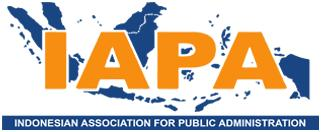Collaborative Governance in Mangrove Ecotourism Policy on Bintan Island Coastal Approach of Penta Helix
Abstrak
This study aims to explore the effectiveness of collaborative governance in implementing mangrove ecotourism policy on the Bintan Island coastal approach of penta helix. The research objectives are to identify the key stakeholders involved in the mangrove ecotourism policy formulation and implementation process, assess their roles and relationships, and analyze how collaborative governance can enhance their collaboration and coordination. Research method uses descriptive qualitative and uses NVivo-20 software analysis which is analyzed in depth. The results show that the penta-helix element in Collaborative Governance has gaps that do not involve all stakeholder actors, both from local government, academia, the private sector, community groups and the media. but in terms of policy or implementation of a Mangrove ecotourism program, scientific studies are needed to support Mangrove ecotourism in coastal areas in Islands Regions have strategic potential to be managed properly by strong stakeholders. The importance of active involvement of the local community as wide as possible with stakeholders such as central, regional and business actors in planning, implementing and making decisions in the formation and management of a Destination Management Organization (DMO). The findings also the need for further research to investigate can be integrated into the policy-making process and contexts.
Kata Kunci
Teks Lengkap:
PDFReferensi
Akbar, D., & Ikhsan, K. (2019). Public-Private Partnership Dalam Pengoptimalan Wisata Bintan Mangrove. Metacommunication: Journal of Communication Studies, 4(1), 128–136. https://doi.org/10.20527/MC.V4I1.6358
Amrial, A., Muhammad, A., & Muhammad, E. (2017). Penta helix model: A sustainable development solution through the industrial sector. Social and Human Sciences, 14(1), 152–156. https://www.researchgate.net/publication/321106743
Ansell, C., & Gash, A. (2008). Collaborative Governance in theory and practice. Journal of Public Administration Research and Theory. https://doi.org/10.1093/jopart/mum032
Arismayanti, N. K. (2017). Development strategy of sustainable marine ecotourism in Indonesia. Article in Asean Journal on Hospitality and Tourism, 15(2), 118–138. https://doi.org/10.5614/ajht.2017.15.2.4
Atungulu, G. G., & Zhang, J. (2018). Collaborative governance and ecotourism management: A case study of Bintan Island, Indonesia. Journal of Hospitality and Tourism Management, 35, 65-74.
Besley, T., & Coate, S. (2003). Centralized versus decentralized provision of local public goods: a political economy approach. Journal of Public Economics, 87(12), 2611–2637. https://doi.org/10.1016/S0047-2727(02)00141-X
Bogdan, R., & Taylor, S. J. (1975). Introduction to Qualitative Research. In Wiley.
Clark, A. M. (1998). The qualitative-quantitative debate: moving from positivism and confrontation to post-positivism and reconciliation. Journal of Advanced Nursing, 27(6), 1242–1249. https://doi.org/10.1046/J.1365-2648.1998.00651.X
Garrod, B., & Wilson, J. C. (2004). Nature on the Edge? Marine Ecotourism in Peripheral Coastal Areas. Journal of Sustainable Tourism, 12(2), 95–120. https://doi.org/10.1080/09669580408667227
Guba, E. G., & Lincoln, Y. S. (1994). Competing paradigms in qualitative research. In Handbook of qualitative research (pp. 105–117). Sage Publication. https://miguelangelmartinez.net/IMG/pdf/1994_Guba_Lincoln_Paradigms_Quali_Research_chapter.pdf
Irawan, A. B. (2013). Valuasi Daya Dukung Fungsi Lindung di Pulau Bintan Propinsi Kepulauan Riau. Jurnal Sains & Teknologi Lingkungan, 5(1), 48–65. https://doi.org/10.20885/JSTL.VOL5.ISS1.ART6
Kementerian Pariwisata dan Ekonomi Kreatif Republik Indonesia. (2019). Kontribusi pariwisata terhadap PDB, 2010-2019. Lokadata. https://lokadata.beritagar.id/chart/preview/kontribusi-pariwisata-terhadap-pdb-2010-2019-1582001327
Kurnianingsih, F., Zulkarnain, I., & Mahadiansar, M. (2021). How Socio-Economic Impact Tourism Development in Pandemic COVID-19? Study of Bintan Regency, Indonesia. International Journal of Social Science and Religion (IJSSR), 2(2), 175–190. https://doi.org/10.53639/IJSSR.V2I2.46
Lee, J. hyuck. (2019). Conflict mapping toward ecotourism facility foundation using spatial Q methodology. Tourism Management, 72, 69–77. https://doi.org/10.1016/J.TOURMAN.2018.11.012
March, J. G., & Heath, C. (2008). A Primer on Decision Making: How Decisions Happen.
Muhsoni, F. F., Zainuri, M., & Abida, I. W. (2021). Evaluasi pemanfaatan pelabuhan kamal untuk wisata bahari pasca pembangunan jembatan Suramadu menggunakan pemodelan rapfish. Jurnal Kebijakan Sosial Ekonomi Kelautan Dan Perikanan, 11(1), 63–73. https://doi.org/10.15578/JKSEKP.V11I1.8230
Mulyadi, A., Yoswaty, D., & Ilahi, I. (2017). Dampak lingkungan dari pengembangan ekowisata bahari di kawasan konservasi lamun Trikora, Bintan, Kepulauan Riau. Berkala Perikanan Terubuk, 45(1), 95–111. https://doi.org/10.31258/TERUBUK.45.1.95
Nawawi, Z. H., Alamsyah, A., & Hasan, I. (2017). Peran pemerintah dalam pengelolaan mangrove (studi terhadap pengelolaan mangrove di Lantebung). Sulesana: Jurnal Wawasan Keislaman, 11(2). https://doi.org/10.24252/.V11I2.4539
Nurhayati, A., Aisah, I., & Supriatna, A. K. (2019). Model Development of A Synergistic Sustainable Marine Ecotourism; A Case Study in Pangandaran Region, West Java Province, Indonesia. Sustainability, 11(12), 3418. https://doi.org/10.3390/SU11123418
Oktaviana, R. F., Muhammad, A. S., Kurnianingsih, F., & Mahadiansar, M. (2021). Internal condition analysis on tourism development of Bintan Regency 2019. Indonesian Journal of Tourism and Leisure, 2(1), 51–61. https://doi.org/10.36256/ijtl.v2i1.129
Olsen, W. (2004). Methodological triangulation and realist research. In Making realism work: realist social theory and empirical research (p. 197). Routledge.
Purnomo, E. P., Fathani, A. T., Setiawan, D., Fadhlurrohman, M. I., & Nugroho, D. H. (2021). Penta-Helix Model in Sustaining Indonesia's Tourism Industry. Advances in Digital Science, 1352, 477. https://doi.org/10.1007/978-3-030-71782-7_42
Putra, A. C. (2014). Strategi Pengembangan Ekowisata Melalui Kajian Ekosistem Mangrove di Pulau Pramuka Kepulauan Seribu.
Putri, I. A. P., Zahra, A., Syafii, I., Adhuri, D., Nadjib, M., & Triyanto, T. (2019). Saving Mangrove, Saving People: Fish-Collab, A Collaborative Governance Approach for Protecting Mangrove in Langkat, North Sumatera Indonesia. Journal of Asian Review of Public Affairs and Policy, 4(3), 60–73. http://arpap.kku.ac.th/index.php/arpap/article/view/174
Saldana, J. (2009). The Coding Manual for Qualitative Researchers. SAGE Publications.
Savage, G. T., Bunn, M. D., Gray, B., Xiao, Q., Wang, S., Wilson, E. J., & Williams, E. S. (2011). Stakeholder Collaboration: Implications for Stakeholder Theory and Practice. Journal of Business Ethics, January, 9.
Soekadijo, R. G. (1996). Anatomi pariwisata: memahami pariwisata sebagai "systemic linkage. In Anatomi Pariwisata. https://doi.org/9796053756,
Sudiana, K., Sule, E. T., Soemaryani, I., & Yunizar, Y. (2020). The development and validation of the Penta Helix Construct. Business: Theory and Practice, 21(1), 136–145.
Tandjung, R., Syafrudin, M. S., & Sunarto, S. (2018). Sustainable tourism as an effort to improve the economy of the coastal community in Bintan Island, Indonesia. Indonesian Journal of Geography, 50(1), 41-50.
DOI: https://doi.org/10.24198/jmpp.v7i1.49066
Refbacks
- Saat ini tidak ada refbacks.
Jurnal Manajemen Pelayanan Publik Indexed By:



This work is licensed under a Creative Commons Attribution-ShareAlike 4.0 International License.


















21.png)



.png)